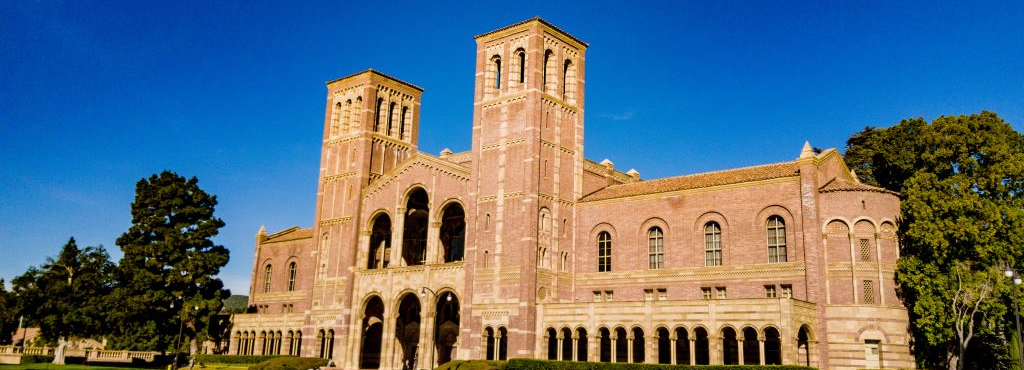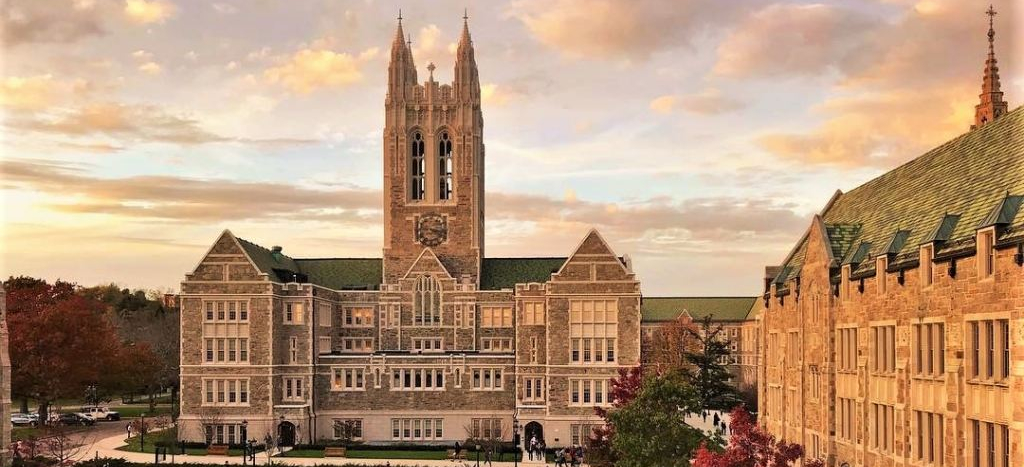The University of California, Los Angeles (UCLA), is one of the most selective universities in the prestigious public University of California system. Located in the Westwood neighborhood of Los Angeles, UCLA offers the best of both worlds: an urban campus with access to all the nature the great state of California has to offer.
Established in 1919, UCLA is the only leading research university developed after 1900. In just about 100 years, UCLA has developed from a small, regional institution for Angelinos into a top college option for prospective students from around the world, especially those from California.
Read on to learn more about UCLA and what you can do to become a competitive applicant.
How to Get into UCLA: Table of Contents
- When to Apply to UCLA
- How Hard Is It to Get into UCLA: Early Prep
- How Do You Actually Get into UCLA: The Application
- Class Profile
- What Makes UCLA Unique?
When to Apply to UCLA
As a part of the University of California system, UCLA participates in the UC application. This is the only way for a prospective student to apply to UCLA. The University of California system does not use the Common App.
When a student applies to any school in the University of California system, they apply using the same UC application. That means that if you apply to one UC school, you can apply to any other UC school using the same application. The UC application deadline is November 30, slightly earlier than most regular applications for admission.
Early, Rolling, and Regular Decision
The University of California system only offers Regular Decision. Even students who consider UCLA or any other University of California school their first choice cannot apply early. Since Early Decision is not an option, students cannot apply to UCLA through a binding agreement.
Though many public state systems offer rolling admissions, the University of California system does not. Rolling admission is when universities accept applications throughout the academic year, on a rolling basis, without a specific deadline. All students applying to any University of California school must apply Regular Decision by November 30 of their senior year.
Learn more about Early Action vs rolling admission and other application options.
Waitlisted Applications
The waitlist is one of three possible admissions decisions an applicant may receive after applying to UCLA, with the other two being admission or denial. When a student is offered a spot on the waitlist, they are offered the opportunity to potentially replace an admitted student’s spot. Universities only offer admission to waitlisted students if they have space in the class after the enrollment deadline for admitted students.
Students must officially accept their place on the waitlist in order to possibly receive an offer of admission as a result of their waitlist status. That said, being admitted off the waitlist is quite rare. In 2022, only 3% of students on the UCLA waitlist were offered a spot in the class.
Deferrals
Students may receive a deferral when applying to a university in an early round like Early Decision, Early Decision II, and Early Action. Students cannot be deferred from UCLA or from any other University of California schools because the schools do not offer early applications. Regardless, it is still important to know what to do if you have been deferred in case you receive a deferral decision from another school to which you applied.
How Hard Is It to Get into UCLA: Early Prep
The answer to the question “how hard is it to get into UCLA?” is a multi-faceted one. It’s complicated, and it depends largely on whether you are applying as a California resident or as an out-of-state resident. That said, no matter where you’re coming from, gaining admission to UCLA is not a walk in the park.
UCLA is one of the most selective schools in the University of California system. Further, it is much more competitive for a student to gain admission to UCLA if they are not a resident of the state of California. Even very academically talented students from California must confront a highly competitive admissions landscape in which there are no guarantees.
Depending on where you are in your college admissions journey, there’s a lot you can do to improve your chances of gaining admission to the University of California, Los Angeles. For example, you can build your profile in a number of ways, especially if you are still years away from submitting an application.
If you’re a junior getting ready to prepare your applications in the fall, you can do plenty to build your profile and make your application more competitive. Read on to learn more about how to build your profile and deepen your level of engagement with UCLA.
Build Your Profile
UCLA is looking for academically talented individuals who are engaged in their communities and committed to making an impact in Los Angeles and in the state of California during their time at the school.
As a prospective student, you can build your applicant profile to tell a story that matches with what UCLA is looking for. Your academic profile should demonstrate strong academic capabilities and improvement over time (or the ability to maintain a high standard consistently). Maintaining an upward grade trend will help your application immensely. Your extracurricular involvement, including community service and part-time work, should demonstrate a deepened commitment to your passions or interests or a strength of character.
Though in the past, conventional wisdom held that college applicants should be well-rounded, that is no longer true. Colleges are now looking for specialized, or what we call “pointy,” students. This makes sense: if well-rounded means students who have dipped their toes in many different interests and passions, a pointy student is one who demonstrates a commitment to just a few passions or interests.
Build your profile by working toward a pointy narrative in a particular direction. This will help strengthen your candidacy to UCLA and other highly competitive institutions.
Visit the Campus and a Class
One of the best ways to find out if UCLA is the right kind of college for you is by visiting campus. UCLA is one of the smallest colleges in the UC system in terms of land mass, considering that it’s in a large, dense urban center.
The university is its own mini universe within Westwood and the greater city of LA. It’s difficult to get a sense of it without visiting and walking through the campus. Luckily, the UCLA office of admissions has several college visit options. Students can take campus tours in person and attend virtual admissions information sessions and events.
You may not be able to attend a class through an official admissions program, but if you already know a student at UCLA, ask if you can go to one of their classes with them. The more you can get to know the school before you apply, the better.
Connect with a Student
Connecting with a student is one of the best possible ways to deepen your understanding and engagement with a school during the application process. You can connect to a student through the UCLA office of admissions. The admissions staff is there to engage with prospective students, answer their questions, and offer perspective on what it’s really like to be a student at UCLA.
Learn About Any Student Experiences
By connecting with a current student, prospective students can learn about student experiences., which is a great way to deepen your knowledge of what the university has to offer and how you might fit into the campus life there.
How Do You Actually Get into UCLA? The Application
Now that you’ve learned about the different ways to build your profile and engage with UCLA, it’s time to learn about what it actually takes to get into UCLA. Below is a breakdown of UCLA’s admissions trends, separated by holistic admissions factors, from GPA to essays.
UCLA employs the holistic review process and its rubric, which includes academic achievement throughout high school, personal qualities, and advancement in other fields — such as creative or athletic endeavors, for example.
Though an applicant’s high school transcript is typically one of the most important elements of their application, the University of California system doesn’t require transcripts with applications. Instead, they ask students to self-report their academic history and grades. Then, if a student is admitted and would like to enroll, they are required to send official transcripts, which must match their self-reported grades.
GPA Requirements
It’s important to understand UCLA’s GPA requirements and how they differ if you’re an in-state applicant or an out-of-state applicant. The minimum high school GPA requirement for in-state applicants is a 3.0, while it’s a 3.4 for out-of-state applicants. Out of the first-year students enrolled in fall 2022, 3.1% had between a 3.75 and a 4.0 GPA.
High school students must meet the following high school academic requirements:
- Two years of history or a social science
- Four years of English
- Three years of math — four years are recommended to be competitive.
- Two years of a lab science
- Two years of a foreign language, also listed as “a language other than English” — to be competitive, students should consider committing to one foreign language for 3-4 years in high school.
- One year of a visual or performing art
- One year of an additional college-preparatory elective
SAT and ACT Scores
UCLA does not consider SAT or ACT scores for admission due to the University of California system’s test-blind policy. None of the UC schools consider test scores for scholarship purposes either. Applicants can still elect to submit scores, however. While they will not be used as a means of assessment, test scores can be used to fulfill a minimum requirement for course placement if a student is admitted and decides to enroll.
Personal Statement
The UC system has its own application and does not participate in the Common Application or the Coalition Application. Rather than just one personal statement, the University of California system requires four essays between 250 and 350 words in length.
Students applying to the UC system must choose to answer four out of eight possible essay questions/prompts. While the prompts may differ each year, here are the prompts from the 2022-2023 application cycle:
- Describe an example of your leadership experience in which you have positively influenced others, helped resolve disputes, or contributed to group efforts over time. (250-350 words)
- Every person has a creative side, and it can be expressed in many ways: problem solving, original and innovative thinking, and artistically, to name a few. Describe how you express your creative side. (250-350 words)
- What would you say is your greatest talent or skill? How have you developed and demonstrated that talent over time? (250-350 words)
- Describe how you have taken advantage of a significant educational opportunity or worked to overcome an educational barrier you have faced. (250-350 words)
- Describe the most significant challenge you have faced and the steps you have taken to overcome this challenge. How has this challenge affected your academic achievement? (250-350 words)
- Think about an academic subject that inspires you. Describe how you have furthered this interest inside and/or outside of the classroom. (250-350 words)
- What have you done to make your school or your community a better place? (250-350 words)
- Beyond what has already been shared in your application, what do you believe makes you stand out as a strong candidate for admissions to the University of California? (250-350 words)
Students should select the four essay questions for which they believe they can write the strongest essays. It’s important to make sure there’s not too much overlap from one essay answer to another, so none of the essays read too similarly. That said, these four essay questions are an excellent opportunity for students to write a cohesive, pointy narrative about themselves while highlighting diverse and multifaceted aspects of who they are. The eighth prompt presents an opportunity for students to demonstrate their interest.
Letters of Recommendation
The University of California system does not require or accept any letters of recommendation as part of their process. This means they do not want counselor or teacher recommendations from applicants. Remember to follow directions — if a school specifically states they do not accept letters of recommendation, do not send them.
Admission Interviews
The University of California system does not include an interview in its process, though it’s helpful to get an idea of interview questions that may be asked for any other schools to which you may apply.
Contribution to the UCLA Community
Among the list of factors that UCLA considers for admissions is “likeliness to make a significant contribution to the campus community.” This means UCLA takes student involvement and engagement seriously. They will assess an applicant’s likeliness to contribute to the UCLA community based on how much that applicant has contributed to their communities in the past.
Class Profile
As we already mentioned, students can apply to any of the UC schools using the same application. So, you may wonder how many people apply to UCLA. The most recent data for the freshman class of 2022 shows 149,815 applicants and 12,844 admits. The UCLA acceptance rate for fall 2022 was 9%.
What Makes UCLA Unique?
UCLA is unique in that it’s the major public research university in the city of Los Angeles. It is a place where students come together from all over California, the country, and the world to engage with one another.
Students can choose from hundreds of extracurricular activities, including community service activities through UCLA’s significant commitment to the Los Angeles community. UCLA is also well-known for its athletic culture. The UCLA Bruins play in the NCAA Division I conference, an enticing factor for student athletes.
It’s important to understand the kind of institution UCLA is in order to gauge whether the university is right for you. UCLA is a large, highly selective public university located in an urban center. That said, it’s not too far from the great natural surroundings that LA has to offer, including the crashing waves of Malibu and the enchanting deserts of Joshua Tree. This university is an excellent option for an academically talented student who wants to meaningfully engage with the world around them.
Also considering USC? Compare USC vs UCLA.
Admissions Counseling
To gain admission to UCLA and other highly selective schools, most students could benefit from expert admissions guidance. IvyWise’s admissions experts are here to guide you through the college admissions process, from building a strategic application plan to essay brainstorming and submission. Take the first step towards getting into your best-fit university and schedule an Initial Consultation.




